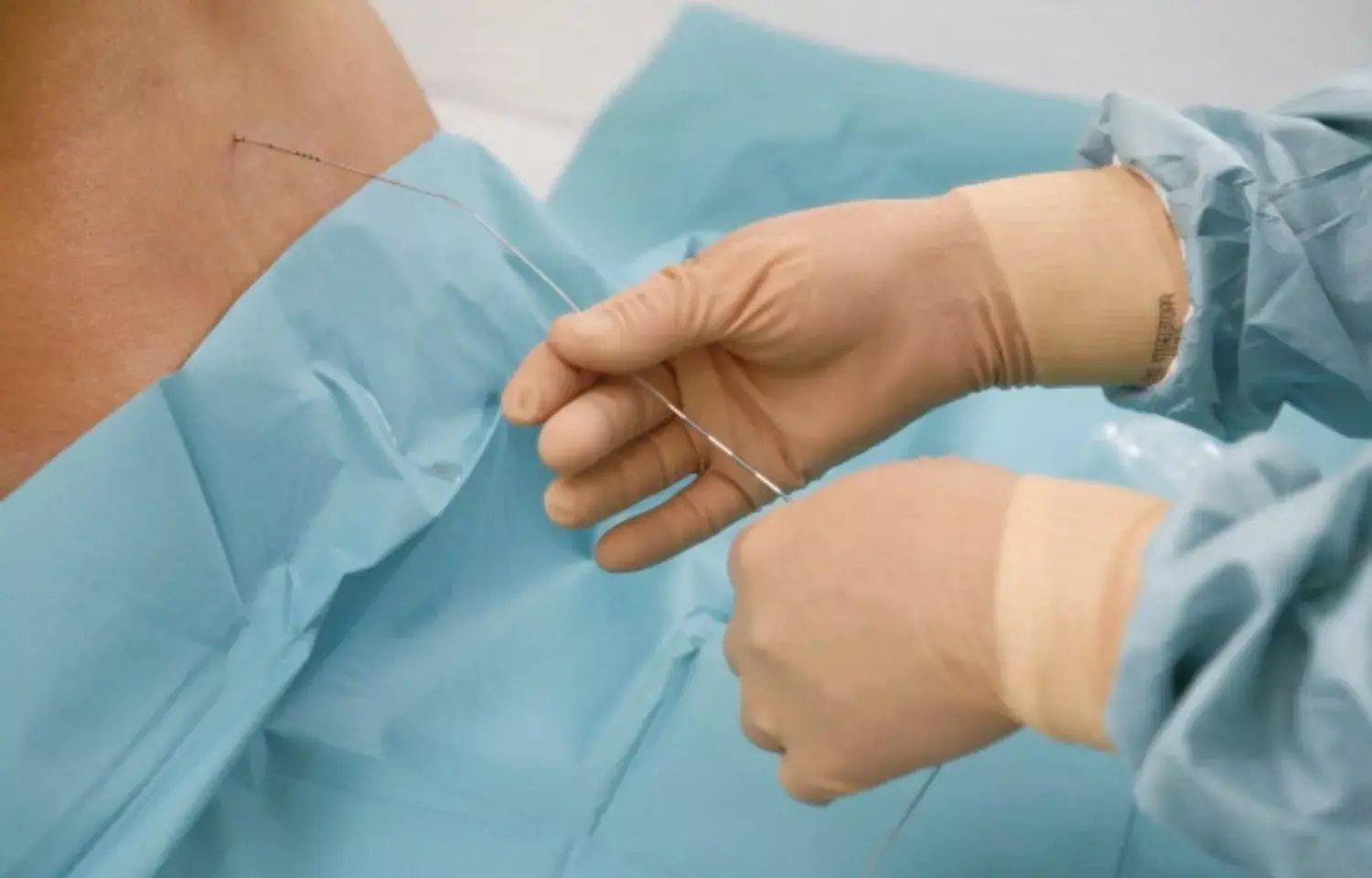- Home
- Medical news & Guidelines
- Anesthesiology
- Cardiology and CTVS
- Critical Care
- Dentistry
- Dermatology
- Diabetes and Endocrinology
- ENT
- Gastroenterology
- Medicine
- Nephrology
- Neurology
- Obstretics-Gynaecology
- Oncology
- Ophthalmology
- Orthopaedics
- Pediatrics-Neonatology
- Psychiatry
- Pulmonology
- Radiology
- Surgery
- Urology
- Laboratory Medicine
- Diet
- Nursing
- Paramedical
- Physiotherapy
- Health news
- Fact Check
- Bone Health Fact Check
- Brain Health Fact Check
- Cancer Related Fact Check
- Child Care Fact Check
- Dental and oral health fact check
- Diabetes and metabolic health fact check
- Diet and Nutrition Fact Check
- Eye and ENT Care Fact Check
- Fitness fact check
- Gut health fact check
- Heart health fact check
- Kidney health fact check
- Medical education fact check
- Men's health fact check
- Respiratory fact check
- Skin and hair care fact check
- Vaccine and Immunization fact check
- Women's health fact check
- AYUSH
- State News
- Andaman and Nicobar Islands
- Andhra Pradesh
- Arunachal Pradesh
- Assam
- Bihar
- Chandigarh
- Chattisgarh
- Dadra and Nagar Haveli
- Daman and Diu
- Delhi
- Goa
- Gujarat
- Haryana
- Himachal Pradesh
- Jammu & Kashmir
- Jharkhand
- Karnataka
- Kerala
- Ladakh
- Lakshadweep
- Madhya Pradesh
- Maharashtra
- Manipur
- Meghalaya
- Mizoram
- Nagaland
- Odisha
- Puducherry
- Punjab
- Rajasthan
- Sikkim
- Tamil Nadu
- Telangana
- Tripura
- Uttar Pradesh
- Uttrakhand
- West Bengal
- Medical Education
- Industry
Thoracic epidural analgesia reduces hospital stay in elderly undergoing open heart surgery

Turkey: Thoracic epidural analgesia (TEA) reduces the length of time in ICU and hospital stays in elderly patients undergoing open-heart surgery, according to a recent study.
The study, published in the Turkish Journal of Trauma and Emergency Surgery, showed that TEA improved respiratory status and blood glucose regulation by supplying analgesia and sedation.
Many organ functions, particularly the respiratory system, are affected by post-operative pain in open-heart surgeries, and so is mortality. Geriatric patients have a higher risk of organ dysfunction and mortality after open-heart surgery. Considering this, Ali Akdoğan, Department of Anesthesiology and Critical Care, Karadeniz Technical University Faculty of Medicine, Trabzon-Turkey, and colleagues aimed to compare the short-term outcomes and mortality of thoracic epidural analgesia and intravenous (IV) analgesia in geriatric patients undergoing open-heart surgery.
The study included patients aged over 65 years who had open-heart surgery between 2010 and 2020. 548 patients were divided into two groups: Those who received TEA (Group E; n=408) and those who received IV paracetamol or tramadol or dexmedetomidine (Group I; n=140).
The researchers compared patients' post-operative sedation and analgesia requirements, blood glucose levels, mechanical ventilation (MV) duration, liver and kidney function tests, intensive care and hospital stay lengths, complications, and mortality rates.
The findings of the study were as follows:
- As a result of the comparisons between the groups, sedation requirement, analgesia requirement, MV duration, post-extubation facial mask oxygen requirement, non-invasive MV need, re-intubation requirement, and blood glucose level was found to be lower in Group E than in Group I.
- Periods spent in intensive care and lengths of hospital stay were found to be lower in Group E than in Group I.
- There was no difference found between the two groups in terms of hospital mortality.
To conclude, "in elderly patients undergoing open-heart surgery, TEA reduced the length of time in intensive care and hospital stays by improving the respiratory status and blood glucose regulation by supplying analgesia and sedation."
Reference:
Akdoğan A, Ertürk E, Özdemir AC, Kutanis D, Güven KY. The effect of thoracic epidural analgesia on short-term outcome and mortality in geriatric patients undergoing open heart surgery. Ulus Travma Acil Cerrahi Derg. 2022 Mar;28(3):382-389. English. doi: 10.14744/tjtes.2022.57995. PMID: 35485565.
Dr Kamal Kant Kohli-MBBS, DTCD- a chest specialist with more than 30 years of practice and a flair for writing clinical articles, Dr Kamal Kant Kohli joined Medical Dialogues as a Chief Editor of Medical News. Besides writing articles, as an editor, he proofreads and verifies all the medical content published on Medical Dialogues including those coming from journals, studies,medical conferences,guidelines etc. Email: drkohli@medicaldialogues.in. Contact no. 011-43720751


